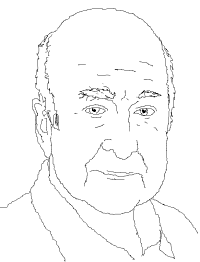 Is CERN, with its Large Hadron Collider, on the brink of revealing the ultimate nature of consciousness? Deepak Chopra seems to think that the Higgs boson, which CERN’s experiments might discover, has something to do with it. ‘Could this in fact be where materialism destroys itself from within?’ he asks, which seems like one of those Interesting Historical Questions To Which The Answer Is No.
Is CERN, with its Large Hadron Collider, on the brink of revealing the ultimate nature of consciousness? Deepak Chopra seems to think that the Higgs boson, which CERN’s experiments might discover, has something to do with it. ‘Could this in fact be where materialism destroys itself from within?’ he asks, which seems like one of those Interesting Historical Questions To Which The Answer Is No.
My understanding of the Higgs boson is slight, but I don’t really see how Chopra’s conclusion follows here: if the existence of the Higgs boson is demonstrated, so far as I know that enables a resolution and tidying-up of some issues in physics, mainly to do with where particles get their mass from. (In my naivety I think I might have been inclined to think that mass was a metaphysical necessity on the grounds that you couldn’t make a coherent universe out of things which were under no obligation to keep still…) That seems to be something that can only tend to strengthen materialism; but even if the boson isn’t found, we’ll merely be looking for a different account of mass. We won’t really be any worse off than we are already; arguably better off in having eliminated another blind alley; so if anything materialism is likely to be looking stronger whatever CERN may come up with.
It looks as though Chopra is really just using the Higgs as a pretext for raising again two earlier arguments. First, he thinks mere physics cannot account for the complex structures and the intentionality found in the world; we therefore need to invoke God – not in the form of an old man with a white beard, but a sort of universal consciousness.
I suppose you could connect universal consciousness with Higgs in a way. According to the Higgs theory, mass arises out of a universal Higgs field with certain interesting properties. We could hypothesise the existence of a comparable consciousness field, which endows certain entities passing through it with experience in broadly the way the Higgs field gives particles their mass. It’s not a theory I feel inclined to take up, but it might offer a way of developing an attractively clear panexperientialism, one where we might even be able to do some sums and make some predictions about the free-floating momentary experiences which I assume would be the equivalent, in this theory, of the famous boson.
But in fact that’s not quite what Chopra means: his second argument is rather that the role of the observer in collapsing wave functions in certain interpretations of quantum physics points us towards a reality in which consciousness is fundamental. He sees this as a step along the road to the perspective of Vedanta, where Brahman the all-inclusive consciousness is the self-interacting dynamic of observer, observed and process of observation.
Even on the most helpful interpretation of quantum physics, I think this reads much too much into the science: in fact I’d go so far as to say that if your reading of quantum physics requires the adoption of universal consciousness, a rather large ontological price, it seems a clear sign that your reading has gone wrong somewhere.
Generally I’d say the march of science is taking us away from universal consciousness rather than towards it. There was a time when it was reasonable to assume that consciousness was naturally out there in divine or panpsychic form and that human consciousness was best explained as some of that natural awareness taking possession of a body. Human consciousness was an inexplicable mystery and referring it to a hypothetical basic element of reality was an economical hypothesis.
Now, however, although consciousness remains mysterious, we can sort of see at least the broad outlines of the sort of way in which it might be naturalised as part of the functioning of a brain. There are some nasty gaps to say the least of it (the ‘meaning’ which Chopra alludes to can fairly be considered one), and many would still say the job is impossible, or impossible to our limited minds: but we’ve got a better hypothesis to work on and quite a bit of evidence that we’re broadly going the right way.
That partial clarification is enough to put the boot on the other foot, and leave us needing more explanation of God, or the universal consciousness. The story of human consciousness as we understand it now relies on the detailed physical interactions of biological material which is itself the product of a process of evolution: but this won’t do for divine or universal minds which have no physical structure and never competed for survival: they need some other explanation, of which there is no sign.
This need not be fatal for spiritual or panpsychic explanations: it might offer a bracing challenge and a spur to investigation and new theories. But it certainly suggests to me that waiting for quantum theory to vindicate Vedantic philosophy is, to put it mildly, optimistic.
(PS – The picture is meant to be Higgs, not Chopra.)
